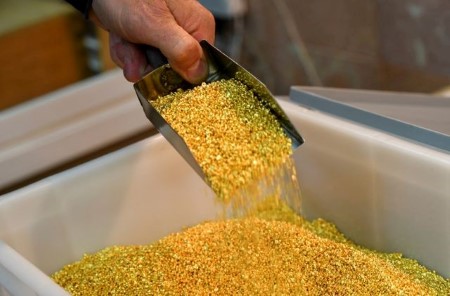




January Economic Update: Growth slows, prices rise
 DOWNLOAD
DOWNLOAD

Inflation Update: Up, up, and away?
 DOWNLOAD
DOWNLOAD

Quarterly Economic Growth Release: Growth takes on a slower pace
 DOWNLOAD
DOWNLOAD


Gold slips, but holds above USD 1,900 pivot on Israel-Hamas conflict

Oct 16 – Gold prices fell on Monday after solid gains in the previous session, but the safe-haven metal held firm above the key USD 1,900 per ounce level as escalating conflict in the Middle East kept investors on edge.
Spot gold was down 0.7% at USD 1,918.20 per ounce by 2:13 p.m. ET (1813 GMT), after hitting its highest since Sept. 20 in the previous session. US gold futures settled 0.4% lower at USD 1,934.3.
“We’re just seeing some healthy consolidation from the recent gains… just some normal profit taking by the short-term futures traders,” said Jim Wyckoff, senior analyst at Kitco Metals.
“We’ve got a serious geopolitical situation playing out in the Middle East, I think gold prices are going to track sideways to higher here in the next few weeks with USD 2,000 not out of the equation.”
Gold, used as a safe investment during times of political and financial uncertainty, has risen more than USD 100 since falling to a seven-month low on Oct. 6, owing to safe-haven inflows as the Israel-Hamas conflict enters its 10th day.
US officials warned that the war between Israel and militant group Hamas could escalate, as US warships headed to the area amid growing clashes on Israel’s northern border with Lebanon.
While investors wait for further updates on the Israel-Hamas war, Federal Reserve Chair Jerome Powell’s speech later this week will also be closely watched for more clarity on US interest rate path.
Markets are pricing in around a 90% chance that the Fed will leave interest rates unchanged at their policy meeting next month, according to the CME FedWatch tool.
Elsewhere, spot silver was down 0.4% to USD 22.6 per ounce.
“Silver investment demand is lackluster but could attract investor attention due to geopolitical tension. We see physical demand in China and India strengthening our bullish conviction,” ANZ analysts wrote in a note.
Platinum was up about 1.2% to USD 891.53 and palladium was unchanged at USD 1,147.62.
(Reporting by Harshit Verma in Bengaluru; Editing by Tomasz Janowski and Shailesh Kuber)
This article originally appeared on reuters.com





 By Reuters
By Reuters